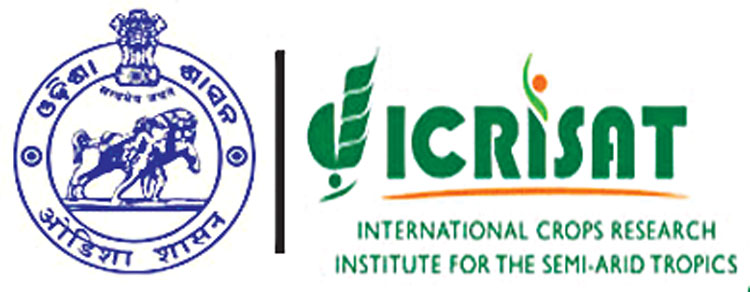Hyderabad, May 25 (Agency) International Crops Research Institute for the Semi-Arid Tropics (ICRISAT) in partnership with the Government of Odisha and with the support of Pragati, a local NGO, have implemented ‘Comprehensive Project on Rice Fallow Management’ (RFM) in 2022-23 and steered away from chemical fertilizers or pesticides to the best extent possible, in the picturesque district of Koraput. Commending the project’s on-the-ground impact, ICRISAT Director General Dr Jacqueline d’Arros Hughes, said the “Project reports indicated that 53 per cent of registered farmers are women, who have seen significant income gains from growing pulses in rice fallows.
“Additionally, the increase in dietary diversity and the rise in daily per capita pulse consumption to 40 grams, meeting the Indian Council of Medical Research guidelines, are notable achievements,” Dr Hughes stated. The introduction of short-duration pulses – chickpea and black gram – that are ready to harvest in just 90-100 days and can thrive during the post-rainy season (rabi) in the residual moisture of the rice fallows was critical to the project’s success, the Institute said in a release here on Saturday. “The project inspired close to 62 percent of participating farmers to cultivate a second crop for the first time in the last five years. Cultivation of rice fallows doubled, and the productivity of black gram and chickpea increased significantly,” said Dr Sean Mayes, Global Research Program Director, Accelerated Crop Improvement, ICRISAT. In most communities, ensuring gender balance in project involvement helps create a level playing field. In this project, it meant engaging the leaders of change, as women play an active role in decision-making. “I have witnessed women’s networks creating a supportive environment for knowledge sharing, skill development, and collective decision-making,” said Dr Manzoor Dar, Global Head – Seed Systems, Principal Scientist, ICRISAT.
Through project interventions, food security and nutritional status improved, with per capita daily pulse consumption increasing from 31.7 grams to 40.2 grams. The project results also indicated a significant enhancement in minimum dietary diversity among women (MDD-W) aged 15-49 years rising from 29.7 percent to 43.9 percent, with pulses playing a substantial role in achieving this improvement, the release said. Early participants in the project recorded a one-third increase in rabi farm income and a one-tenth increase in overall farming compared to the previous year. Farmers were able to sell a portion of their harvest left after meeting household consumption needs. Training sessions for both the staff of the NGO partner and the farmers—ranging from using a new monitoring and evaluation tool, collection of GIS and soil analysis data, and creating awareness of good agricultural practices—were critical to the success of the project. The ‘Comprehensive Project on Rice Fallow Management’ presents a successful gender-inclusive model for intensifying pulse cultivation in rice fallows. With the support of the Government of Odisha, the project methodology was scaled up in eight districts of Odisha, currently benefiting 152,601 farmers. The project enrollment statistics, however, emphasize the need for greater efforts to promote gender inclusivity and hold significant implications for policymakers advocating for the scaling of this approach, the release added.

